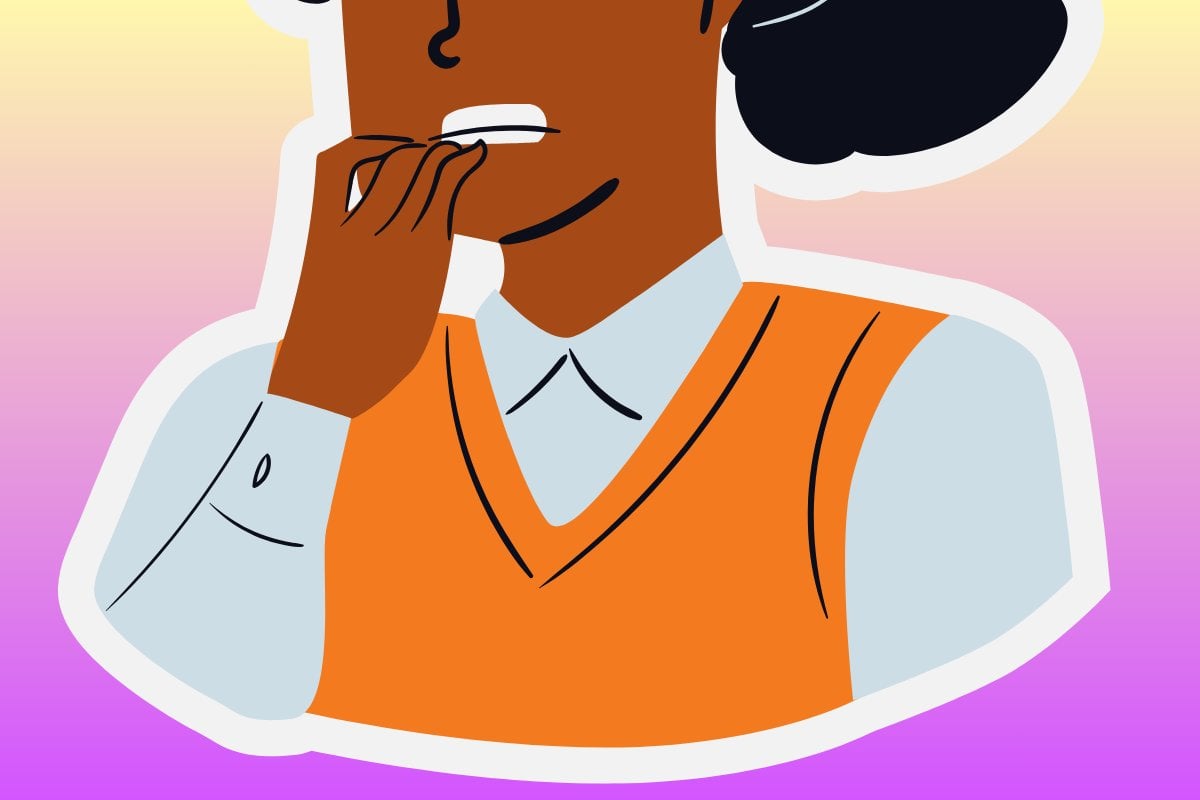
During stressful times, some people lash out at their loved ones. Me? I prefer to unleash my frustrations on an even more unsuspecting bystander: my fingernails.
Okay, so my nails also cop a gnawing when I’m not overly stressed. I chew them when I’m bored; I nibble at them when I’m thinking, and when I don’t have nail scissors handy… carnage ensues.
Nail chewing and picking is a decidedly unpleasant habit, and most of us are fighting a constant battle between the urge to bite and the desire to have lovely, strong, smooth nails that actually look good under a coat of varnish.
Watch: A quick glimpse into what life is like with and without nails. Post continues after video.
Kicking the habit is one thing — but what next for your embattled nails? I took my many (mani?) questions to Erin Margrethe, the manicurist behind Melbourne's glitter-happy Blonde Tiger salon, to find out how to help your nails heal and undo any trauma your teeth have inflicted.
Rather than tut-tut me for my chewy ways, Erin says nail biters shouldn't be ashamed of their habit. "It's quite normal. We all have our little quirks and habits, and we go through periods of indulging them and starting up the whole shame cycle that comes along with it," she explains.